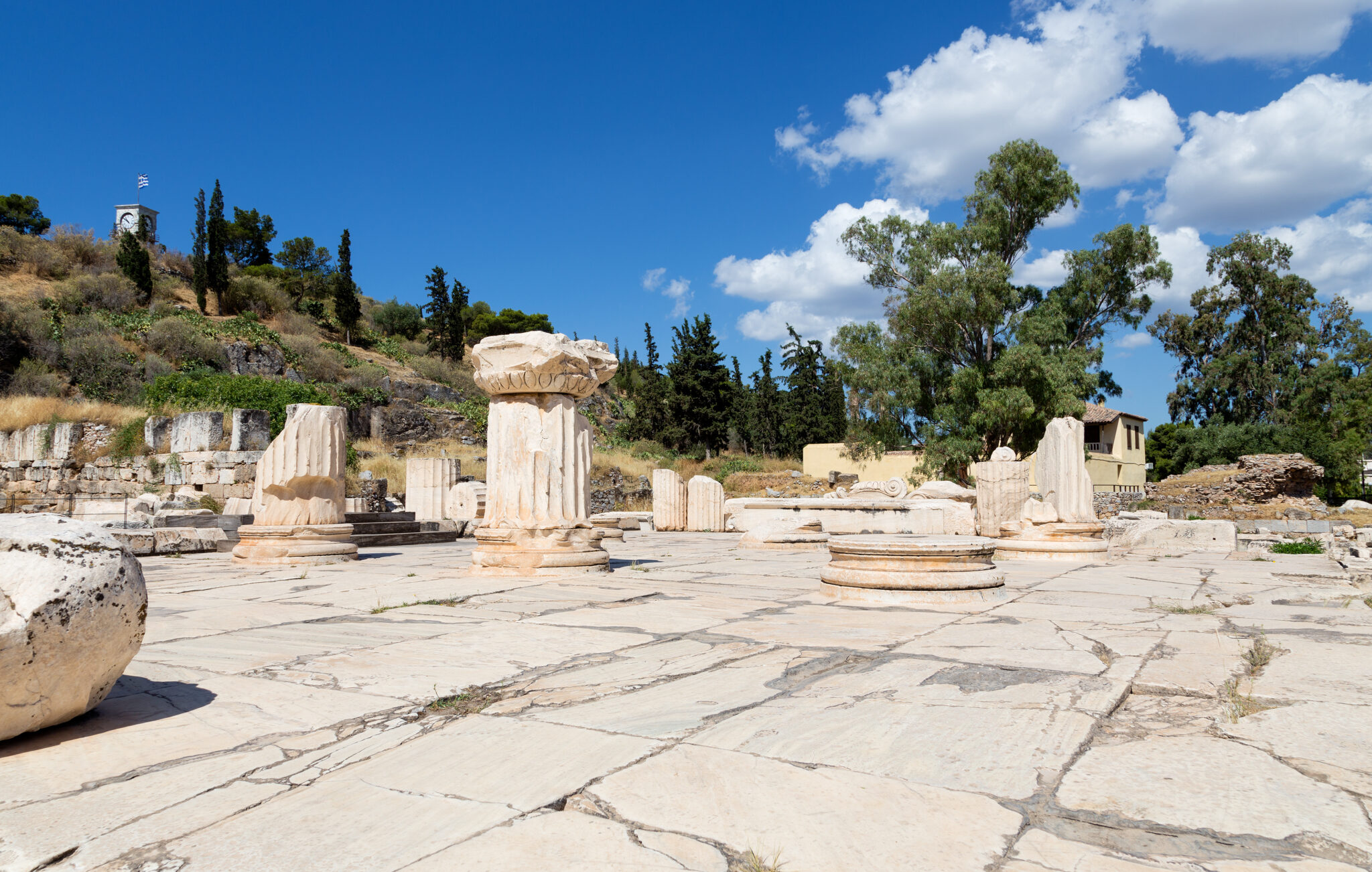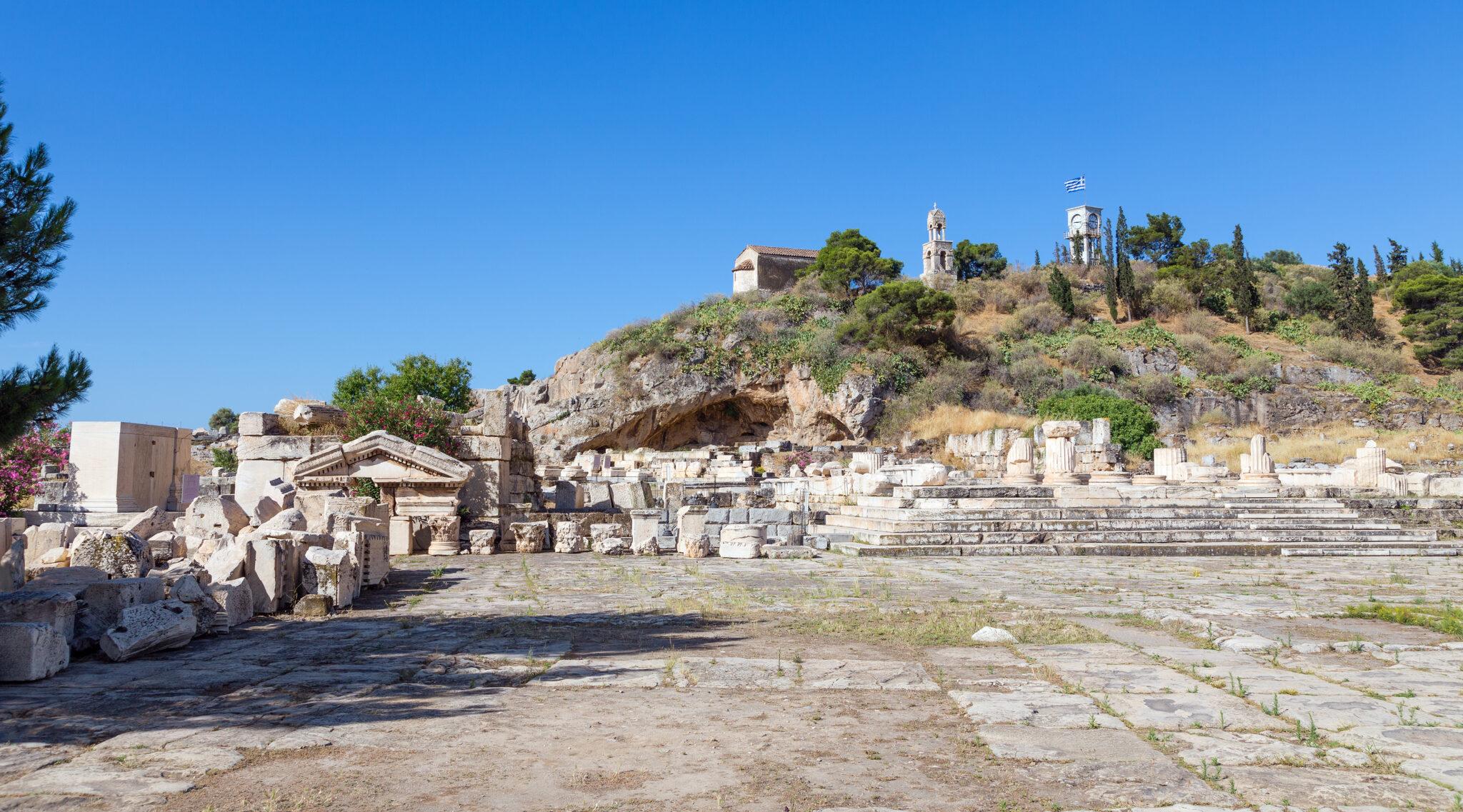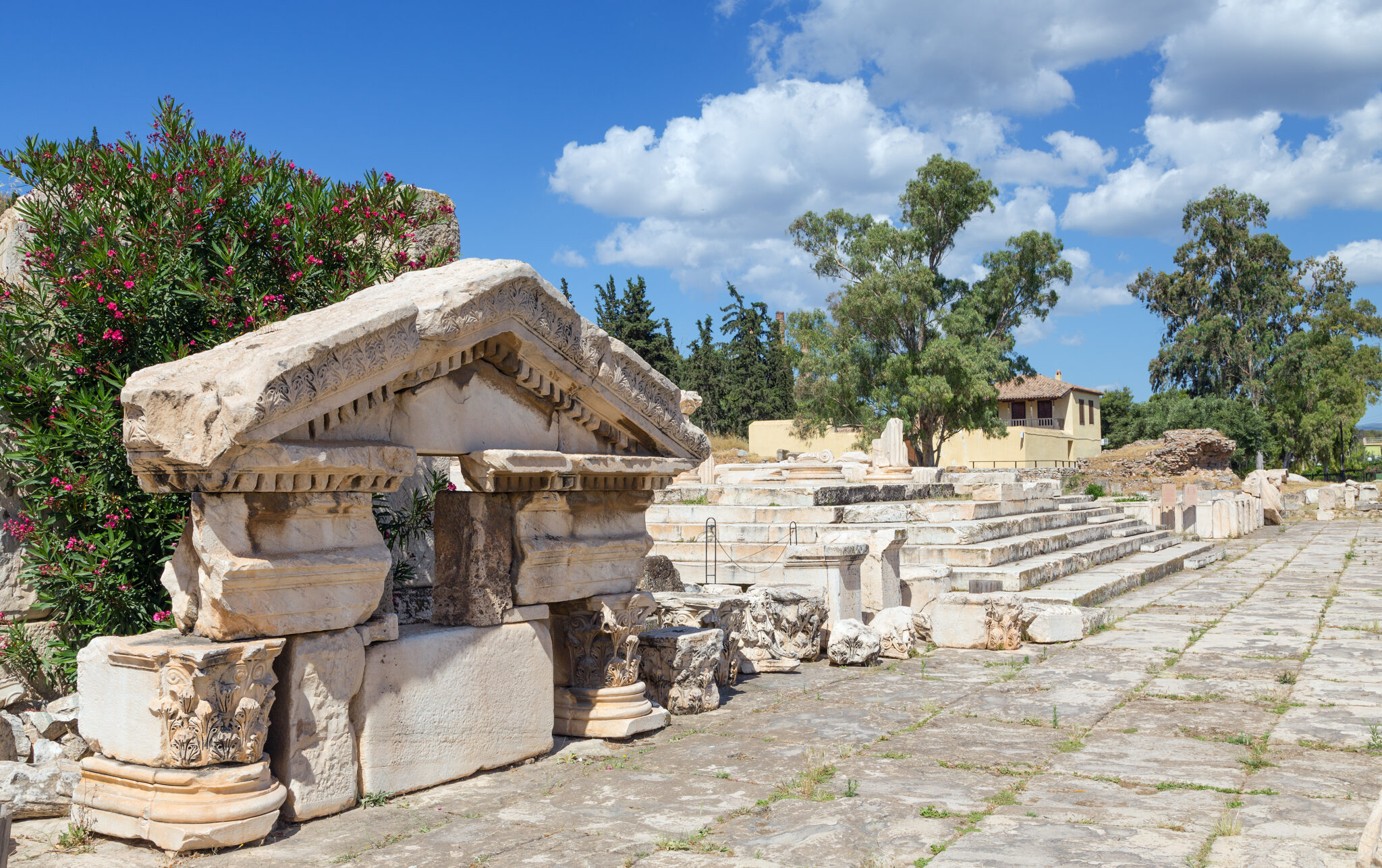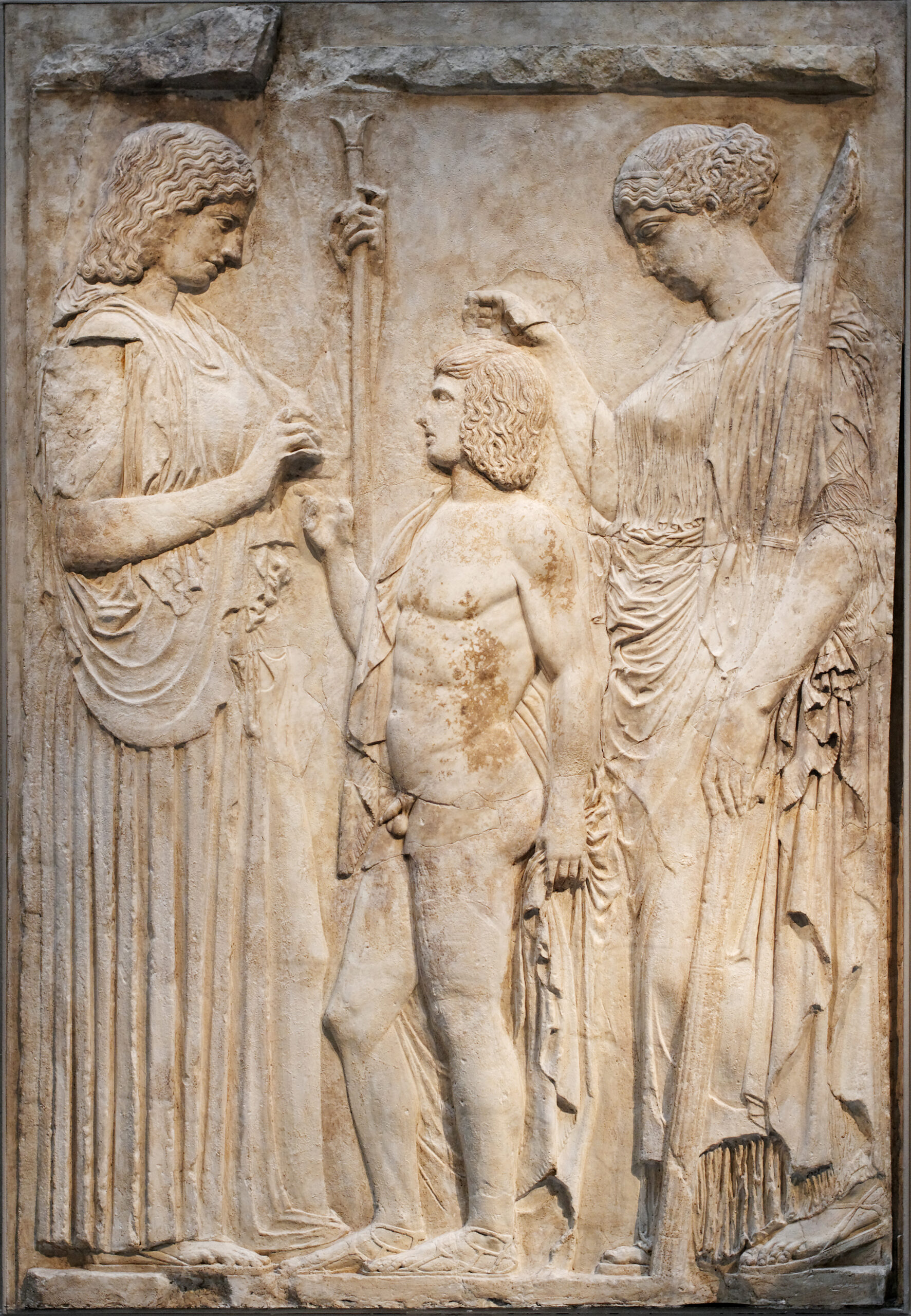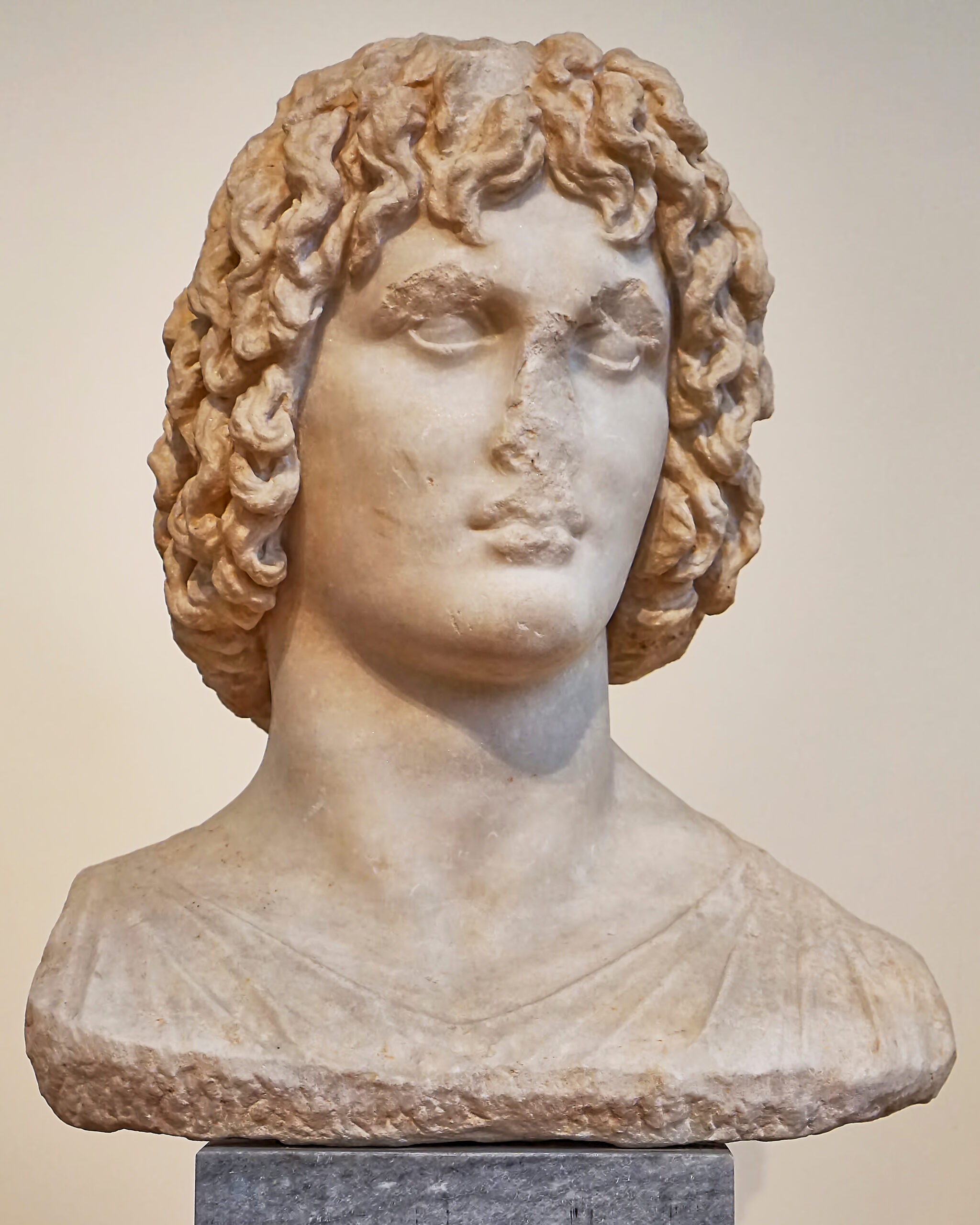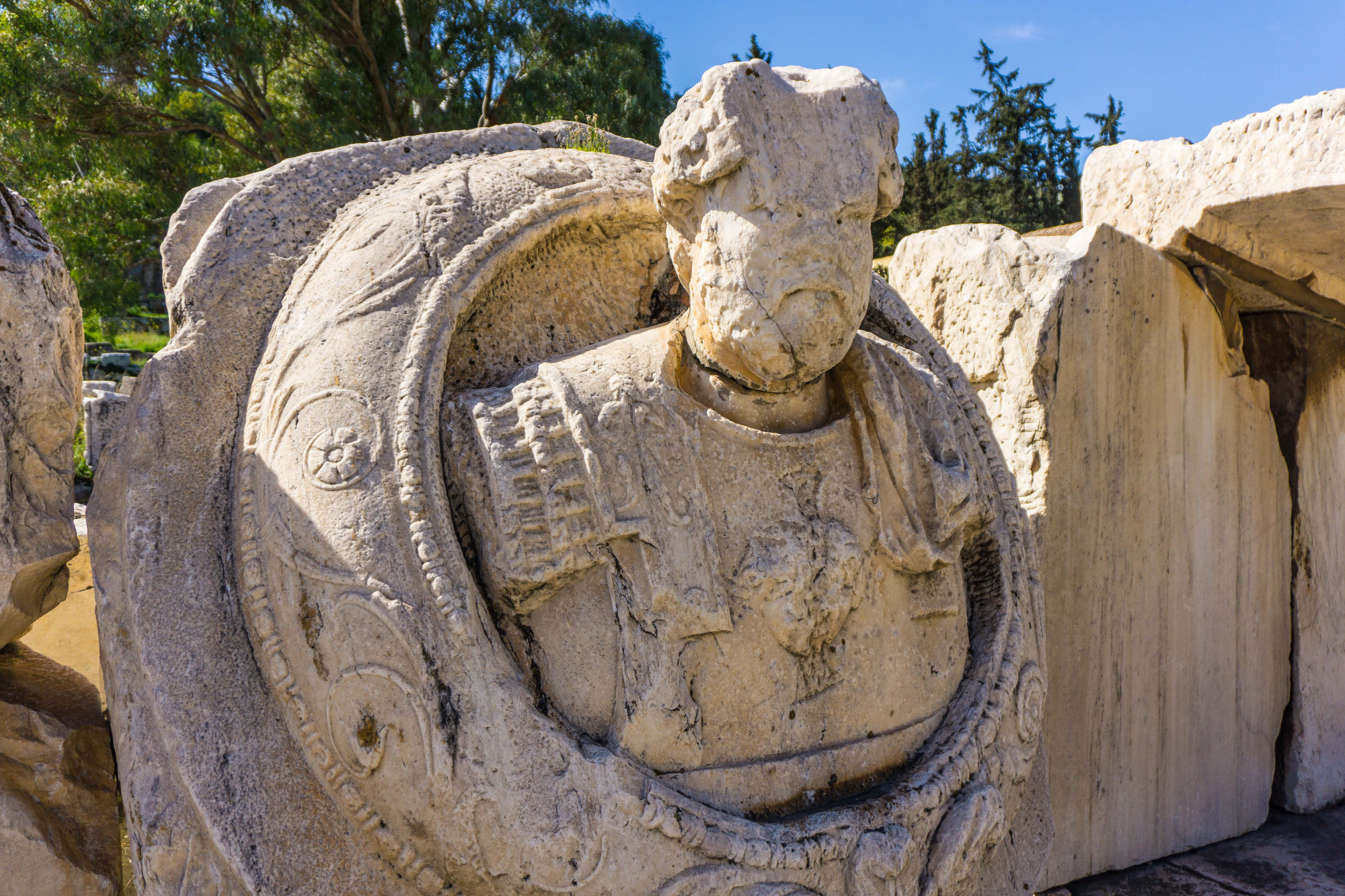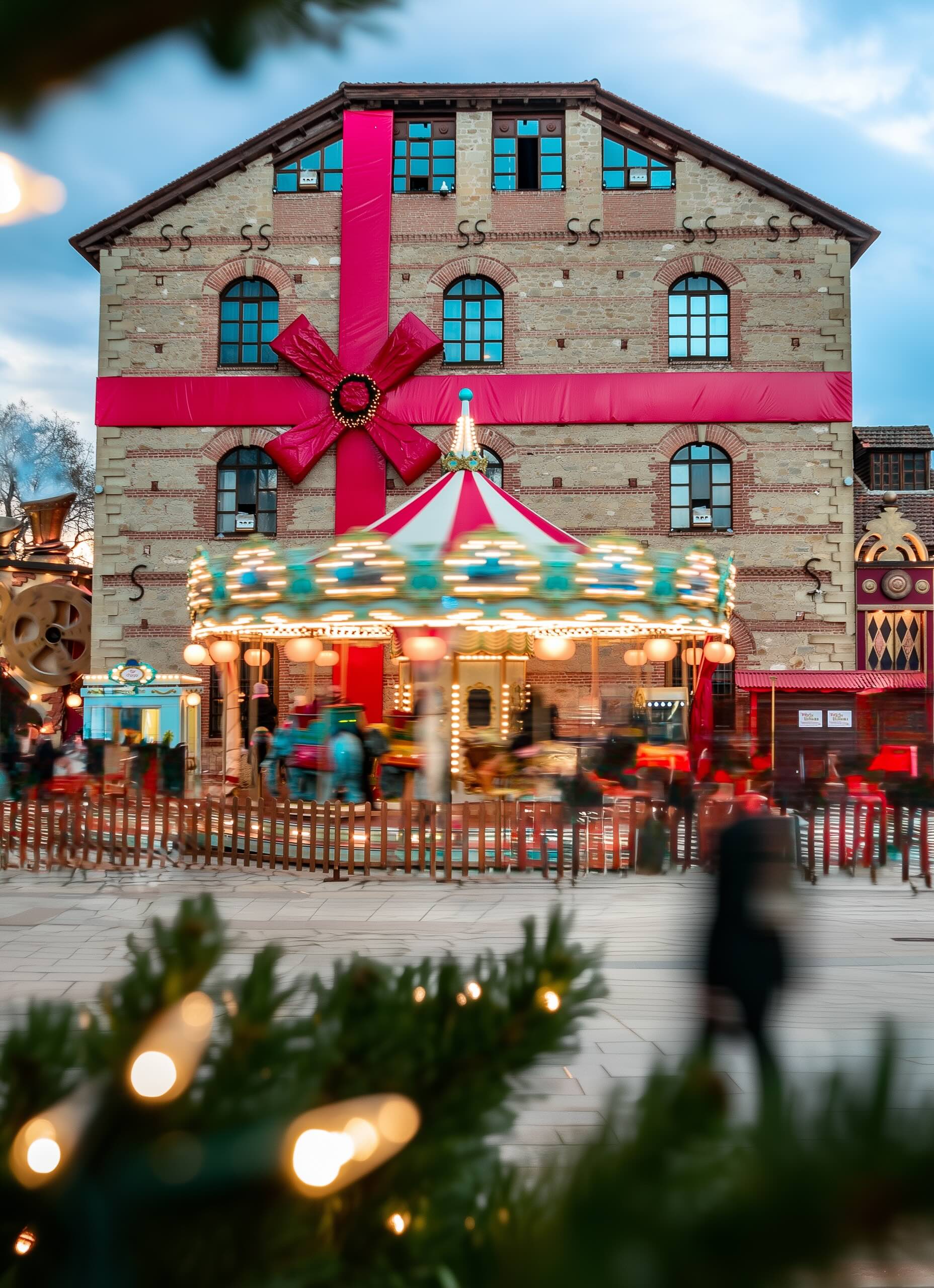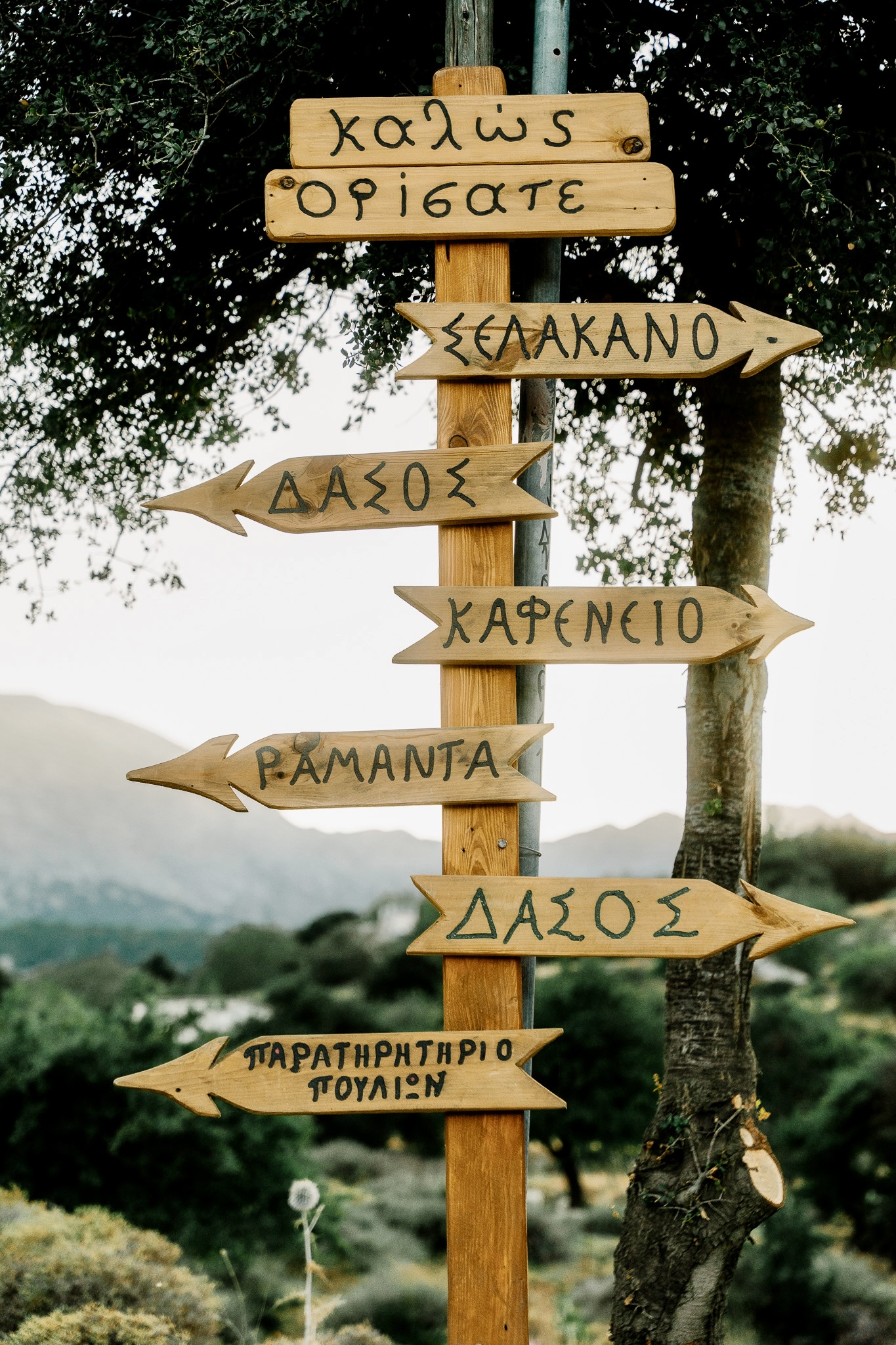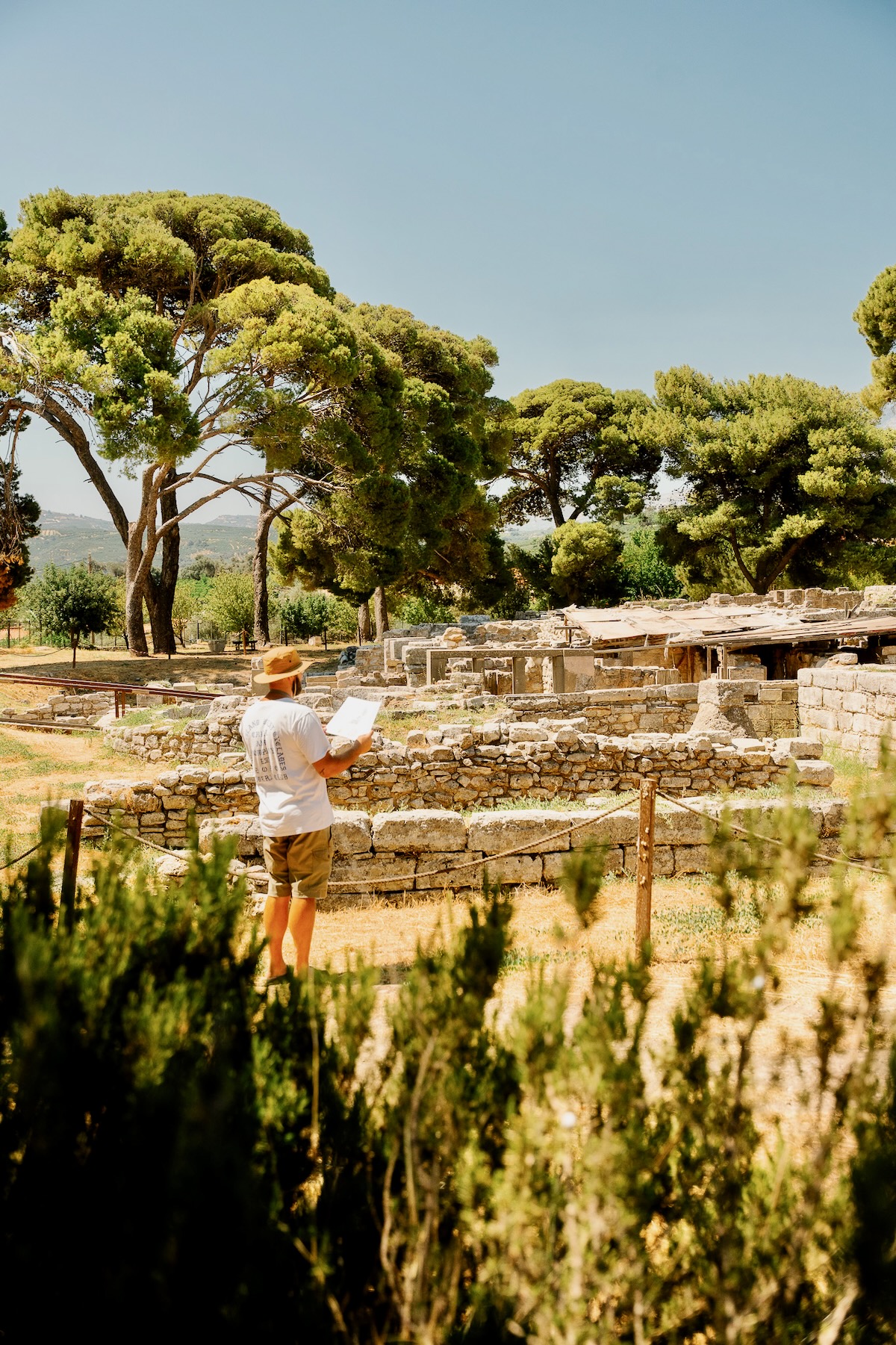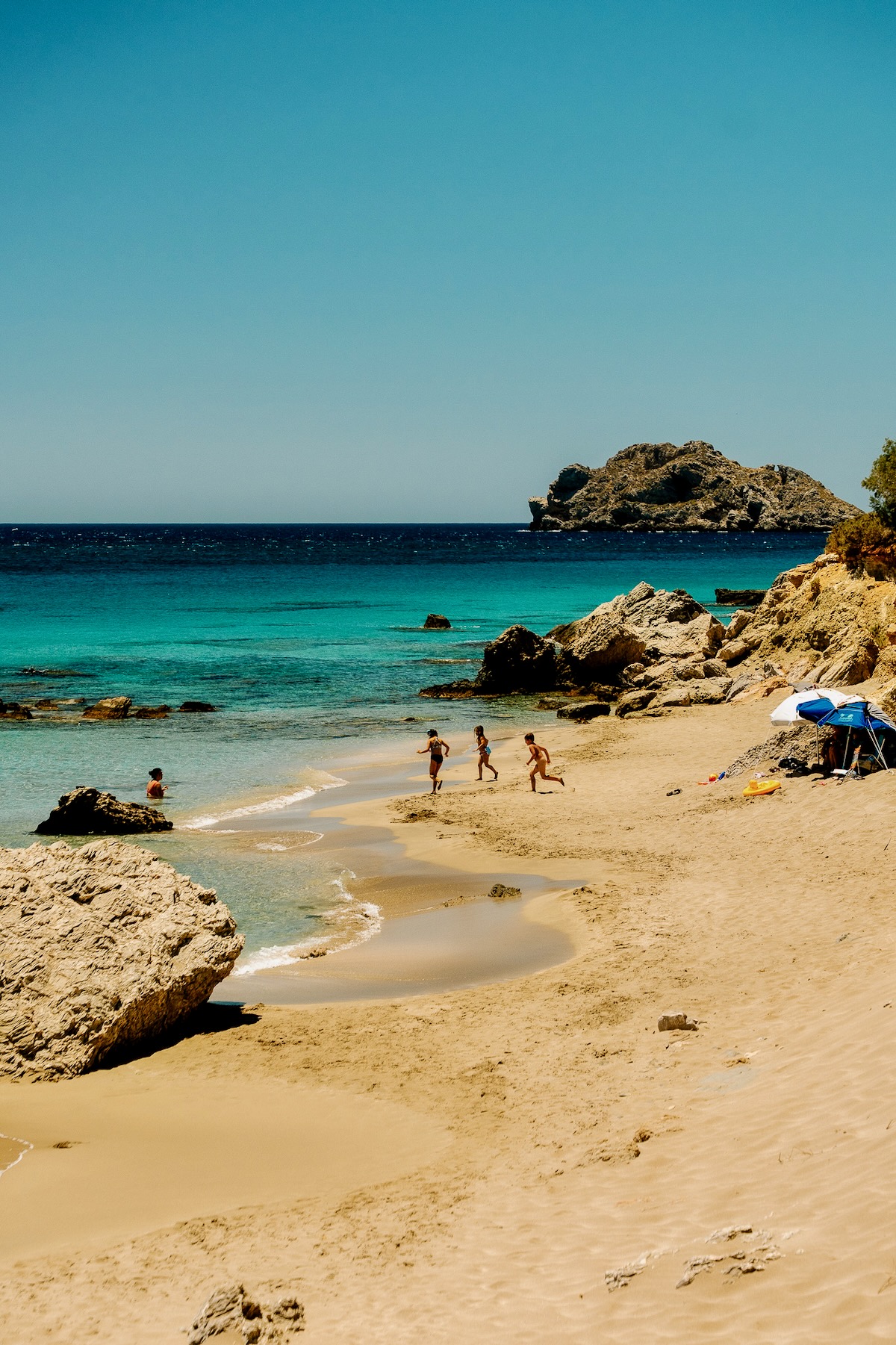Sometimes it’s easy to think that every corner of Eleusis, the ancient Greek site steeped in centuries-old secrets, has been exhausted by visitors. As the hub for the enigmatic Eleusinian Mysteries, Eleusis was once the bee’s knees of Panhellenic sanctuaries. Recently, it got a facelift, being named 2023 European Capital of Culture alongside Timișoara in Romania and Veszprém in Hungary, which has made it the new “it” destination for those with a taste for mystery.
These days, Elefsina, just a stone’s throw from Athens, sits atop the ruins of the old city, balancing old charm with an industrial-era grit. It’s a bit of a fixer-upper, with its dilapidated factories and towering chimneys lining the shoreline, but signs of a revitalization effort have sprouted, from cultural events to art exhibitions. A recent cherry-on-top is the reopening of one of Greece’s oldest archaeological museums in February 2023.
One key to the city’s past is the playwright Aeschylus, who penned his masterpiece, “The Persians,” while possibly standing on the hill overlooking the sanctuary of Demeter and Persephone. Looking out at the island of Salamis, it’s easy to imagine him channeling the dramatic naval battle between the Greeks and Persians into his work. Aeschylus’ Eleusis is long gone, but according to the writer Henry Miller, there’s still something cosmic about the place that is best experienced on foot.
When it comes to Eleusis, the secret sauce is the cult of Demeter, the goddess of the harvest. Her myth, involving the abduction of her daughter Persephone by Hades, the god of the underworld, and their eventual reunion, formed the bedrock of the Eleusinian Mysteries. For initiates, these rites symbolized the endless cycle of life and death, like nature’s own soap opera. Even though the initiation rites are now a thing of the past, the spiritual essence of Eleusis lives on, echoed by the Greek rhetorician Isocrates who celebrated Demeter’s gifts of agriculture and hopeful eternity.
Fast forward to today, and the Eleusinian Mysteries are still a bit of a….. mystery. All we know is that the initiation ceremonies were held in the telesterion, a large hall with steps lining all four sides. Designed for maximum dramatic effect, it featured torchlight effects that would’ve given any modern theater a run for its money. Although the hall’s seen better days, the ruins still give you a sense of what it must’ve been like.
Annual initiation rites were held in Eleusis, culminating in a grand procession from Athens to Eleusis. After purification rituals and fasting, participants would gather for an all-night vigil and partake in a drink, potentially laced with hallucinogenic substances. As long as you hadn’t committed murder or couldn’t speak Greek, you were in!
In terms of artifacts, the Archaeological Museum of Eleusis is a treasure trove. From statues of gods to everyday objects, the museum offers a sneak peek into ancient Eleusis. Among the highlights are a headless sculpture of Demeter, an exquisite marble relief featuring Demeter offering ears of wheat to a youth, and a striking likeness of Antinous, Emperor Hadrian’s lover.
A visit to Eleusis isn’t complete without checking out a pair of colossal statues known as caryatids. These statues, which were part of a gateway leading to the inner area of Demeter’s temple, are thought to represent the daughters of Appius Claudius Pulcher, a Roman consul. Now, only fragments remain, but these fragments continue to strike an imposing figure, etched with the passage of time, conveying a sense of lost grandeur and echoing the glory that once was Eleusis.
A newer addition to the city’s cultural profile is the Aeschylia Festival, an annual cultural festival named after the city’s most famous son, Aeschylus. The festival, which takes place in the summer, has become a major attraction, offering a unique blend of ancient and contemporary art, theatre, dance, music, and even circus performances.
And when it’s time to wind down, consider visiting the Paralia Elefsinas, the local beach, or try out some traditional Greek dishes at the local eateries. The town is known for its ‘loukoumades’, delicious Greek doughnuts drizzled with honey.
Lastly, don’t miss the chance to visit the ongoing ‘Eleusis 2023‘ events. As part of the European Capital of Culture program, the city has lined up a series of happenings throughout the year, encompassing music, theater, dance, visual arts, literature, and cinema, among others. These events are not only aimed at fostering creativity but also serve as a bridge between the city’s storied past and its present, adding another layer to the city’s vibrant cultural fabric.
So, with all this history, mystery, culture, and charm, the once-bustling, now quiet city of Eleusis beckons. Whether you’re a history buff, an archaeology enthusiast, a culture vulture, or simply a traveler with a penchant for the road less traveled, Eleusis has something to offer. Who knows, you might even find yourself swept up in the millennia-old magic of the place, captivated by the same ethereal allure that had once enthralled the ancients.
Read also:
An Excursion to Elefsina, the Religious Site of the Ancient Mysteries
Eleusis, a Greek City is a European Capital of Culture in 2023



